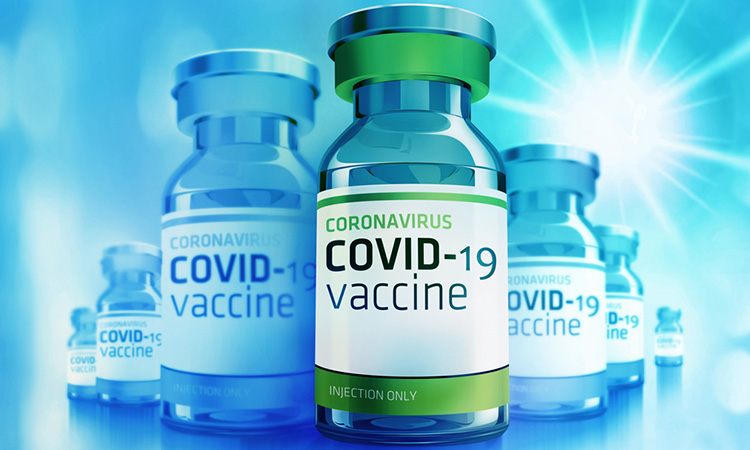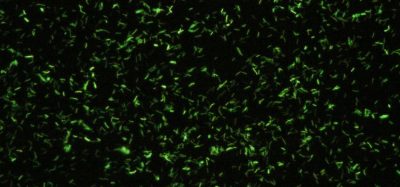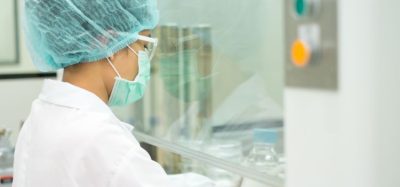NIAID doses first patient with Moderna’s variant specific COVID-19 vaccine candidate
Posted: 1 April 2021 | Hannah Balfour (European Pharmaceutical Review) | No comments yet
The trial will evaluate the safety and immunogenicity of the mRNA-1273.351 vaccine candidate in 200 healthy adult volunteers.


The US National Institute of Allergy and Infectious Disease (NIAID) has dosed the first patient in a Phase I trial evaluating mRNA-1273.351, Moderna’s modified COVID-19 vaccine candidate designed to protect against the B1.351 SARS-CoV-2 variant originally identified in South Africa. SARS-CoV-2 is the virus that causes COVID-19.
The Phase I trial (NCT04785144) will evaluate the safety and immunogenicity of mRNA-1273.351 in adults and will enrol approximately 210 healthy volunteers at four clinical research sites in the US.
“The B1.351 SARS-CoV-2 variant, first identified in the Republic of South Africa, has been detected in at least nine states in the United States,” stated NIAID Director Dr Anthony Fauci. “Preliminary data show that the COVID-19 vaccines currently available in the United States should provide an adequate degree of protection against SARS-CoV-2 variants. However, out of an abundance of caution, NIAID has continued its partnership with Moderna to evaluate this variant vaccine candidate should there be a need for an updated vaccine.”
Investigators from NIAID and Moderna co-developed the original mRNA-1273 vaccine, which is currently authorised by the US Food and Drug Administration (FDA) for emergency use in the US for the prevention of COVID-19 in adults 18 years of age and older. The vaccine is administered as two 100µg doses 28 days apart. The vaccine uses lipid nanoparticles (LNPs) to deliver mRNA encoding a stabilised version of the spike protein found on the surface of the SARS-CoV-2 virus to cells, causing them to produce the protein and induce an immune response. The variant vaccine candidate, mRNA-1273.351, differs from the currently-authorised vaccine in that it delivers instructions for making the SARS-CoV-2 spike that incorporates key mutations in the B1.351 virus variant. In addition to the Phase I clinical trial, investigators at NIAID’s Vaccine Research Center are collaborating with Moderna to evaluate mRNA-1273.351 in animal models.
The new trial will enrol approximately 60 volunteers ages 18 years and older who already have received the mRNA-1273 vaccine when it was being evaluated in its own Phase I trial. As well as 150 people ages 18 through 55 years who have not received any COVID-19 vaccine (naïve) and have no known history of COVID-19 or SARS-CoV-2 infection, and do not have health conditions that are associated with an increased risk of severe illness from SARS-CoV-2 infection. The remaining participants from the mRNA-1273 trial will be offered a booster shot of mRNA-1273 as part of a separate clinical trial protocol (NCT04283461).
The naive volunteers will be randomly assigned to one of eight cohorts:
- Group 2A (15 participants) will receive three vaccinations 28 days apart: 100µg of mRNA-1273, followed by 100µg of mRNA-1273, followed by 50µg of mRNA-1273.351.
- Group 2B (15 participants) will receive three vaccinations 28 days apart: 50µg of mRNA-1273, followed by 50µg of mRNA-1273, followed by 50µg of mRNA-1273.351.
- Group 2C (20 participants) will receive two vaccinations 28 days apart: 100µg mRNA-1273.351, followed by 100µg of mRNA-1273.351.
- Group 2D (20 participants) will receive two vaccinations 28 days apart: 50µg of mRNA-1273.351, followed by 50µg of mRNA-1273.351.
- Group 2E (20 participants) will receive two vaccinations 28 days apart: 100µg of mRNA-1273, followed by 100µg of mRNA-1273.351.
- Group 2F (20 participants) will receive two vaccinations 28 days apart: 50µg of mRNA-1273, followed by 50µg of mRNA-1273.351.
- Group 2G (20 participants) will receive a single vaccination at their initial visit which combines 50µg of mRNA-1273 plus 50µg of mRNA-1273.351. Twenty-eight days later, they will receive another single vaccination of the same dose and combination.
- Group 2H (20 participants) will receive a single vaccination at their initial visit which combines 25µg of mRNA-1273 plus 25µg of mRNA-1273.351. Twenty-eight days later, they will receive another single vaccination of the same dose and combination.
The trial will evaluate the safety and reactogenicity of the vaccine candidate as well as its ability to induce an immune response. Participants will be closely monitored for safety and will be asked to return to the study clinic for multiple follow-up visits between vaccinations and for additional visits during the year after their last vaccination. Participants also will be asked to provide blood samples at specified times throughout the trial that will be used to measure the immune response against circulating strains of SARS-CoV-2, including the B.1.351 variant.
An independent safety monitoring committee (SMC) will oversee the trial by regularly reviewing safety reports. The SMC can make a recommendation to the sponsor (NIAID) whether the trial should be halted, modified or terminated at any point.
Investigators anticipate the trial will be fully enrolled by the end of April 2021.
Related topics
Biologics, Clinical Trials, Drug Development, Drug Safety, Immunisation, Research & Development (R&D), Vaccines, Viruses
Related organisations
Moderna, US National Institute of Allergy and Infectious Disease (NIAID)









